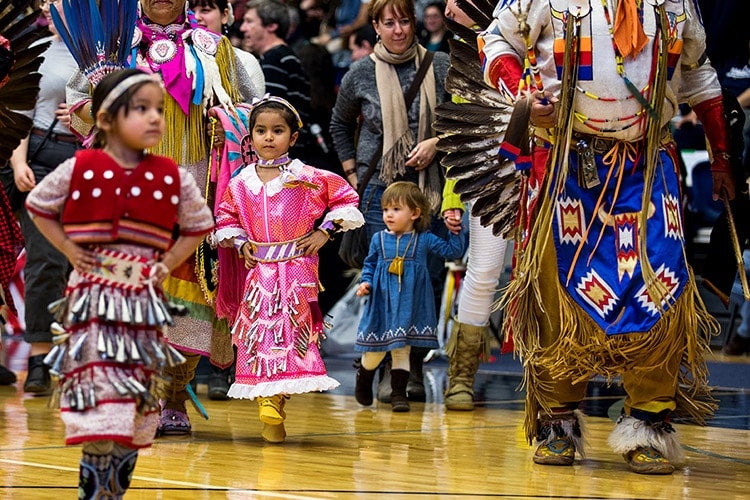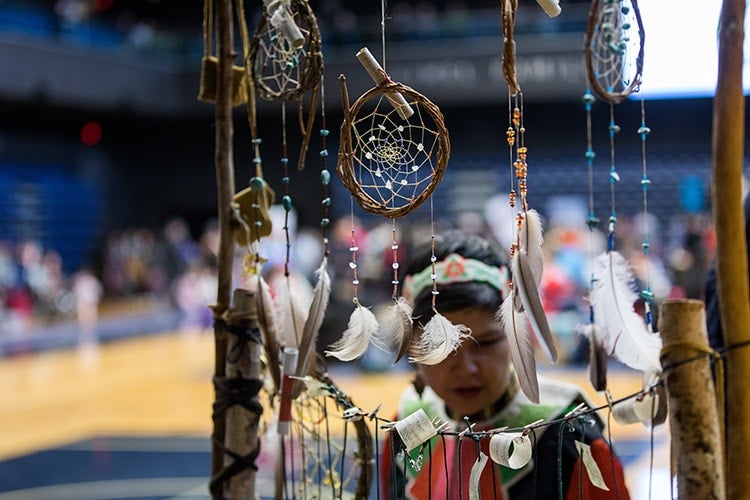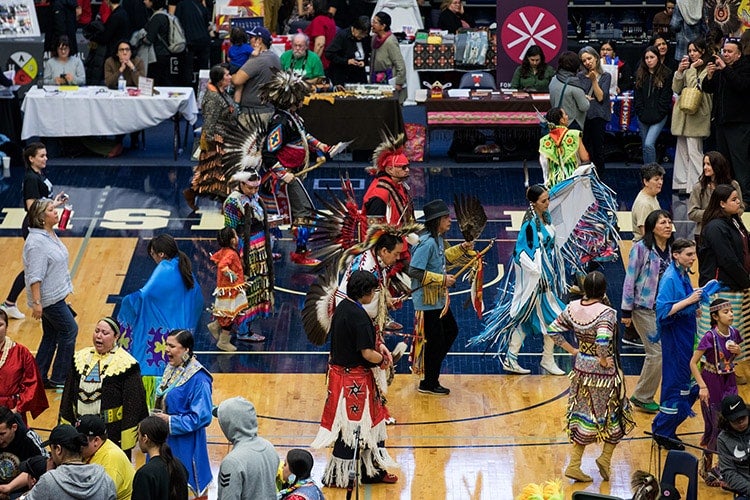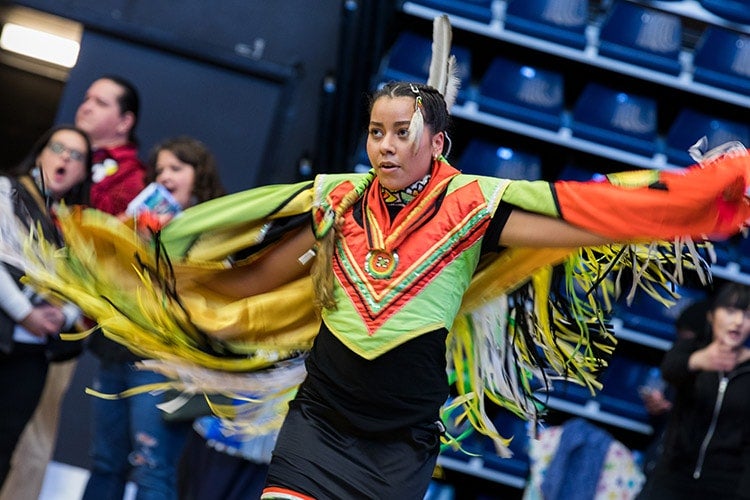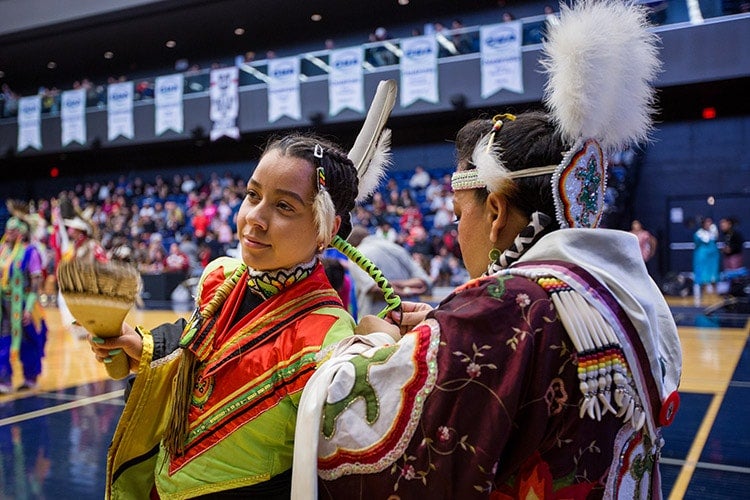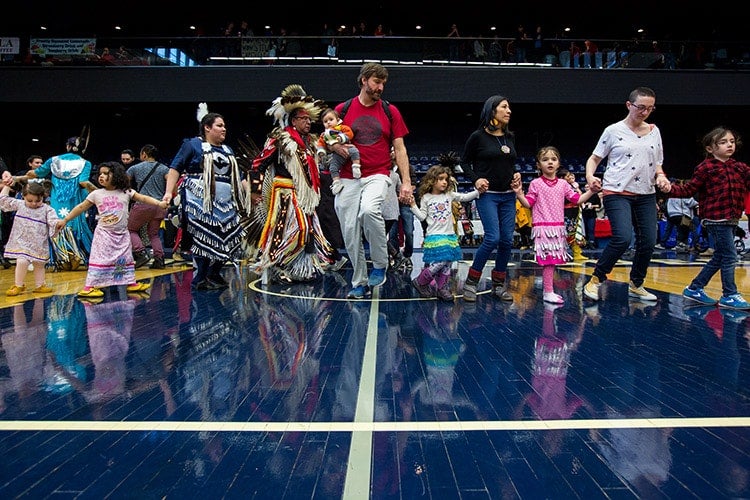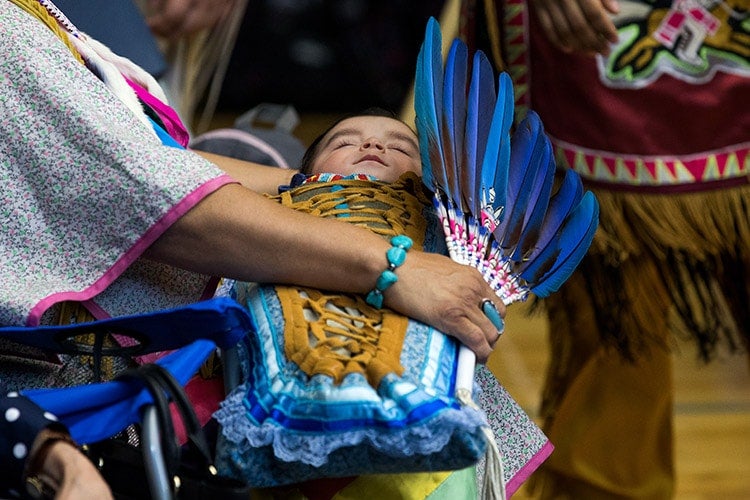'Adrenaline and pure joy were feeding my soul': Nine photos from powwow at U of T
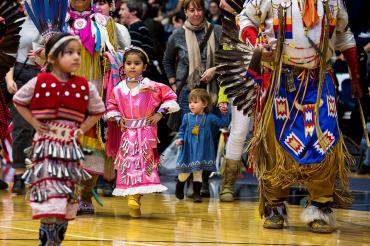
Published: March 12, 2018
Hundreds of people in a rainbow of colours filled the Goldring Centre for High Performance Sport at the University of Toronto on Sunday for the Indigenous Studies Students' Union's powwow.
The celebration was the second in a row at the university, following the ISSU's massive powwow – the first at U of T in decades – at the Athletic Centre last year.
“Powwow is about family – whether that’s the powwow family or the University of Toronto family,” MC Bob Goulais, from Nipissing First Nation, told U of T News.
With the silky smooth voice of a radio deejay, Goulais narrated the proceedings from a table at the centre of the gym, beginning with the grand entry. Students organized the powwow, as they did last year, around the theme, “Honouring our students.”
“Having a university that supports cultural knowledge, Indigenous traditional knowledge, and puts on events that welcome and feature students is such an important thing,” Goulais said.
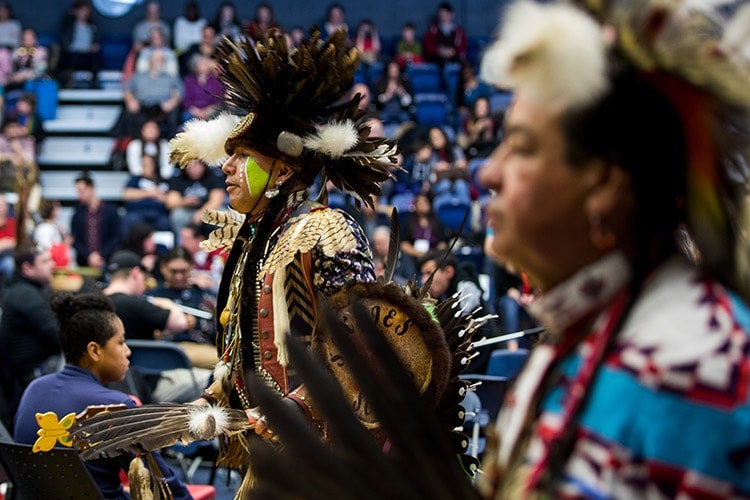
The powwow was also an opportunity for non-Indigenous people to learn about the diversity of Indigenous languages and cultures, he added. He said he hopes visitors would take an interest in more than what met the eye, including the personal stories of the singers, dancers and elders involved.
“A lot of the stories are about healing and how they came in touch with their culture again and became proud of who they are.”
Ryan DeCaire, an assistant professor at the Centre for Indigenous Studies and the department of linguistics, spoke at the powwow with students from his Kanien’kéha (Mohawk language) class.
They took turns saying the Ohen:ton Karihwatehkwen, a prayer that roughly translates to “the words that come before all else” and gives thanks to the elements of creation.
DeCaire, who is Mohawk from Wáhta Kanien’kehá:ka Territory, just east of Georgian Bay, learned the language as an adult. He's trying to pass it onto future generations through full-year courses at U of T. The language and its inherent knowledge are in danger of dying out, he said, as only about 1,000 fluent speakers remain in North America – and many of them are elderly.
Read more about DeCaire in the Toronto Star
“People say our knowledge is held by the elders, but it's not true; it's held by the kids,” he said. “If inter-generational transmission comes to an end, the knowledge can no longer continue.”
He said he was touched by the large turnout for the powwow, to see hundreds of people come together to celebrate Indigenous culture and traditions.
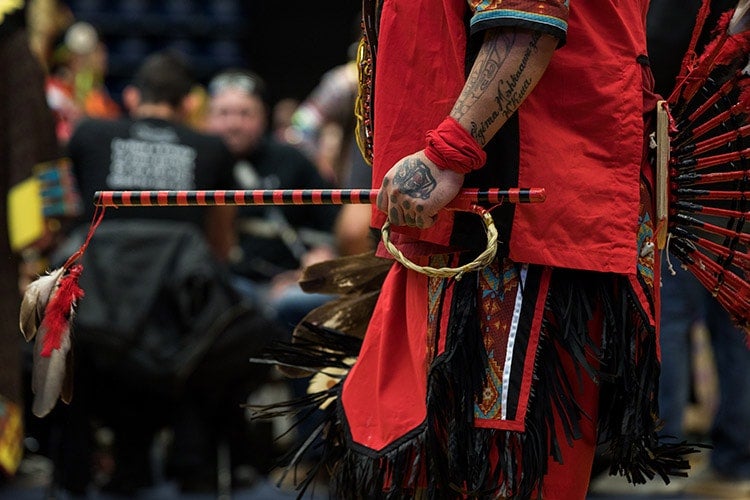
Jenny Blackbird, an artist, hand drummer and singer of Nehiyaw-Finnish background who works for the Centre for Indigenous Studies, said the event shows great leadership by ISSU, the students and volunteers, who are helping build a community at U of T.
“Our ceremonies and our dancing were banned (in Canada),” she said. “For today, for us to be able to celebrate and do what we feel is right for us, is really good and very important.”
Ziigwen Mixemong, the head female dancer and membership support coordinator at ISSU, said she was almost overcome with emotion during the grand entry. “My mom and dad were both there and I literally couldn't look at them or I'd start to cry,” she said.
The highlight of the event for her was seeing young children and students participate in the intercultural experience, which attracted people from as far as Thunder Bay and incorporated Métis jiggers, Inuit throat singers and Aztec dancers.
Her opposite number, the head male dancer, was a faculty connection: The role was filled by Amos Key Jr., an assistant professor at the Centre for Indigenous Studies and in the department of linguistics.
ISSU executive member Olivia Miller was in charge of managing the 40 volunteers for the event, but was able to pause briefly to watch the fancy shawl dancers from the mezzanine overlooking the gym.
Miller added an Indigenous Studies major after she realized she knew little about Indigenous languages or cultures. After their orientation session, she said many volunteers told her the powwow made them more curious about Indigenous culture and that they felt a “need to begin the process of orienting themselves to Indigenous knowledge and culture.”
She and the other student organizers – Mixemong, Joshua Bowman, Julia Mogus, Grace Webster, and Jennifer Sylvester – are planning a debrief meeting soon so the next executives can plan an even bigger powwow next year.
Speaking a day after the event, Mixemong said she was still sore from all the dancing. “Adrenaline and pure joy were feeding my soul,” she said.
Here are more of staff photographer Laura Pedersen's favourite photos from the powwow:
